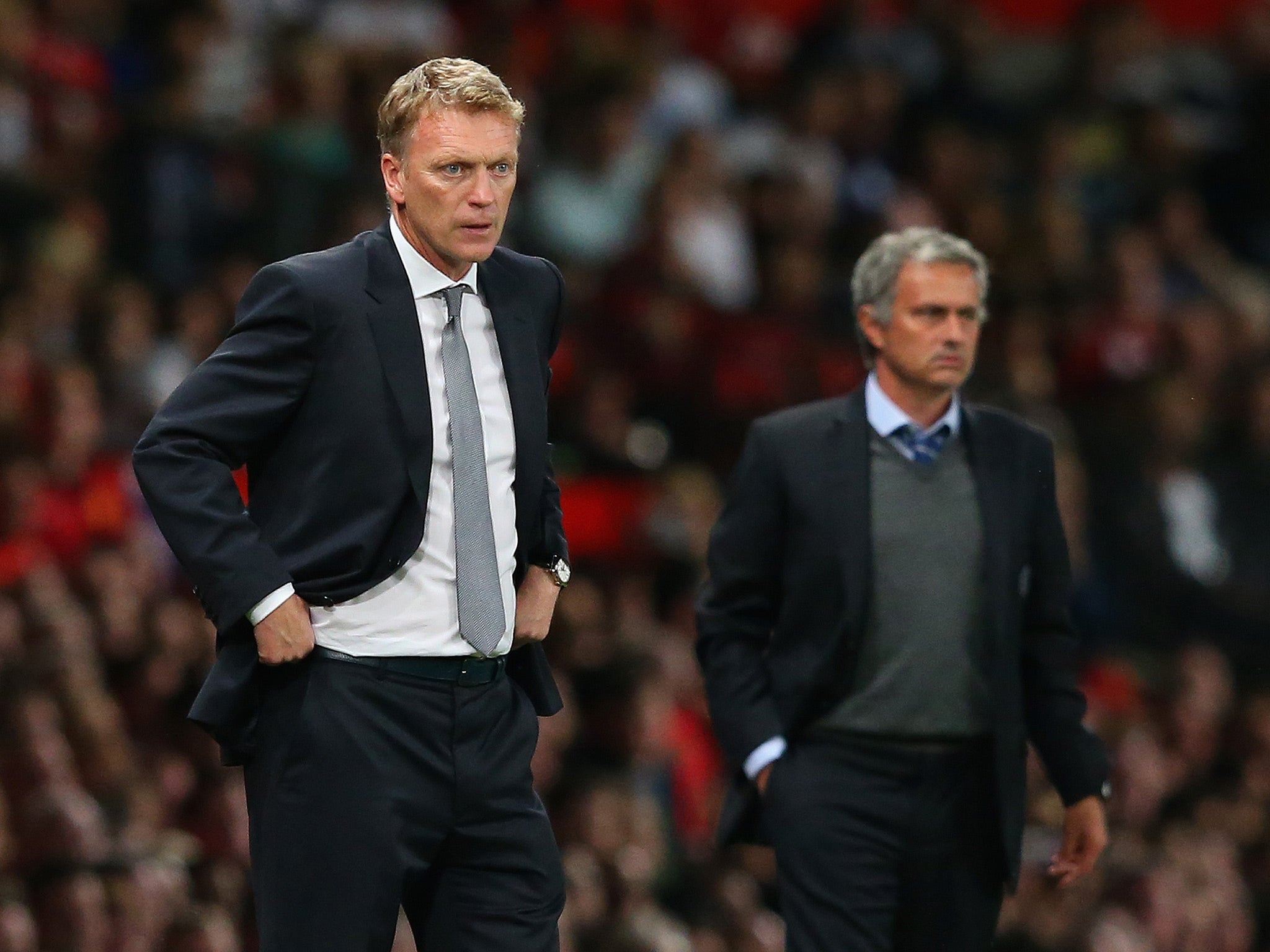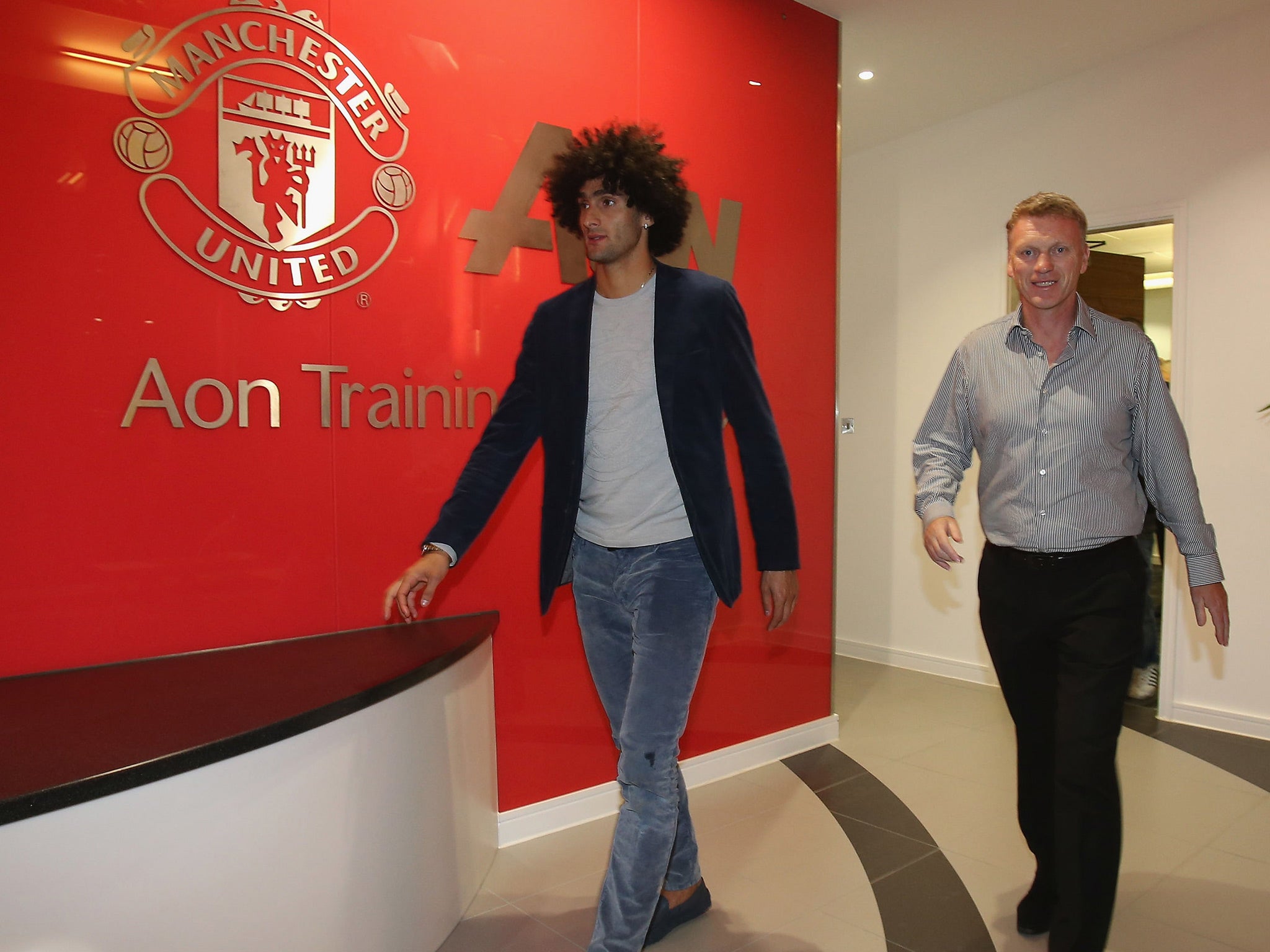Manchester United: Why David Moyes failed at Old Trafford in a way Jose Mourinho will not
The Scot returns on Boxing Day, for the first time since his dismissal in 2014, and will find a club that is slowly finding its feet again

Jose Mourinho arrived to talk in his flip-flops on Friday and looked as unencumbered as ever by the new managerial space he occupies.
His lip curled, in that Mourinho way, when he was asked if he had sought out David Moyes, one of his unsuccessful predecessors, for advice, before taking on this job. “No, David was not also a person that I asked for…” He offered no laurels for Sir Alex Ferguson, either. Had he thought when Ferguson retired four years ago how difficult it would be to follow the man? “Not really.”
As Mourinho flip-flopped off, having nonchalantly let off a few grenades and just about remembered to extend us a ‘Happy Christmas’, the overriding thought was how searingly different all this was to the excruciating defensiveness and dreadful tension of press conferences held here by Moyes, who returns to Manchester United on Boxing Day – with Sunderland - for the first time since he was sacked by the club, two years and eight months ago.
Moyes was 16 words into his inaugural press appearance as United manager when he mentioned Ferguson and though we did not know it that day – July 5, 2013 – his gauche deference foretold what we now know: that he was neither big nor bold enough to manage United. “I didn't get a chance to say ‘yes’ or ‘no’” he said in that first press conference. “I was told I was the next Manchester United manager by Sir Alex, and for me that was enough. As you can imagine, the blood drained from my face.”
Moyes has said in the years since his dismissal that he was not granted sufficient time or investment, though he also admits the scale of the club’s ambition in the transfer market was substantial. Ryan Giggs was put to work in the summer of 2013 to persuade his compatriot Gareth Bale to leave Tottenham Hotspur for United rather than Real Madrid and there was a period in early in Moyes’ second month in charge when the Welsh connection seemed to have a chance of working, with the Spanish club keeping Daniel Levy waiting.
The struggles of the big beast Louis van Gaal put Moyes’ travails into some perspective, once he had been shown the door. It was a year ago on Friday that Van Gaal marched out of his Carrington press conference with the words “Enjoy the wine and a mince pie. Goodbye” after four minutes and 58 seconds, because stories had circulated about his impending dismissal.
Yet Moyes had a far smaller mentality than even Van Gaal. He was so accustomed to spending every penny of Everton’s precious money so carefully that he when given the early chance to move for Thiago Alcantara in 2013 he didn’t take it. He said he wasn’t familiar enough with the player, so United embarked on a depressing wild goose chase for Cesc Fabregas instead. They ultimately pursued to deadline day only those players who Moyes knew inside out – Leighton Baines and Marouane Fellaini. Just one of them was prised from Goodison Park and the supporters’ scepticism about Fellaini is borne of what he represents: the Moyes era.
This sense of narrow horizons was deepened for United fans by Moyes’ utterances – from the claim that Liverpool were the ‘favourites’ against his own side, to the notion that United would be up against it when playing Newcastle United. The contrast with Mourinho’s pursuit of Paul Pogba, Zlatan Ibrahimovic and Henrikh Mkhitaryan could not be greater. He dithered in his team selections and tactical planning, too.
Moyes offered some interesting reflections on Friday about what he perceives as an unwelcome change at United in the years since Ferguson walked away. “Manchester United was a club with great traditions, tradition where they tended to pick British managers,” he said. “That tradition has now gone. They were a football club who enjoy traditions with the way they spent. They didn’t try to compete with all the other clubs. They did what they thought was the right thing to do and spent the right way. I can say that’s gone. There have been a few changes at Manchester United but that’s the way they have chosen to go.”
There he goes again. “They didn’t try to compete.” Enough to make most of the United faithful hold their heads in hands. Of course the club have competed in every sphere of football. Rio Ferdinand cost £30m in 2002.
Nearly three years on, his discussion is still about what might have been in the transfer market. It is a few weeks since he trained fire on Sunderland’s owners by declaring he might not have joined the club if he’d known the resources available to him. “Managing Sunderland always had an appeal to me but, if I’d known about the financial situation, I’d have needed to look at it in a different way.” A big beast would have demanded a guaranteed transfer pot, instead of resorting to the kind of utterance which cannot have been inspiring for his struggling players to read.

We will never know whether United might have managed a smooth succession had one of the big beasts of management succeeded Ferguson, though the swagger which was lost in those months is something the club are still trying to locate.
Ferguson feels there was something significant to read into Moyes’ thrift. “Many people seem to have forgotten his performance at Everton where, despite being under severe financial constraints, he achieved strong league performances,” he has since written.
Yet Mourinho said on Friday that the old rules about natural succession and endless success were already vanishing in the summer Ferguson left. “What I knew was the evolution of the Premier League - the direction of the Premier League,” he said. “I knew that periods of domination belonged to the past because the Premier League was going already in an incredible direction and it is what it is now…”
Join our commenting forum
Join thought-provoking conversations, follow other Independent readers and see their replies
Comments